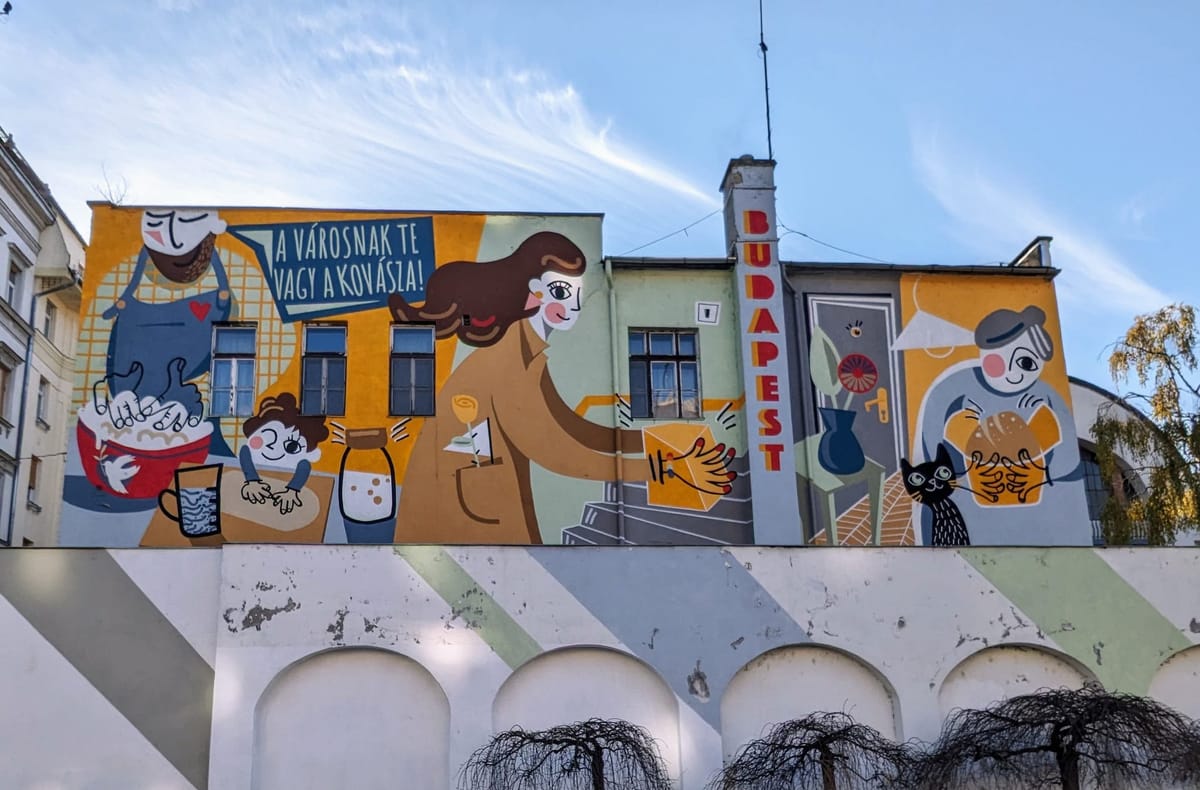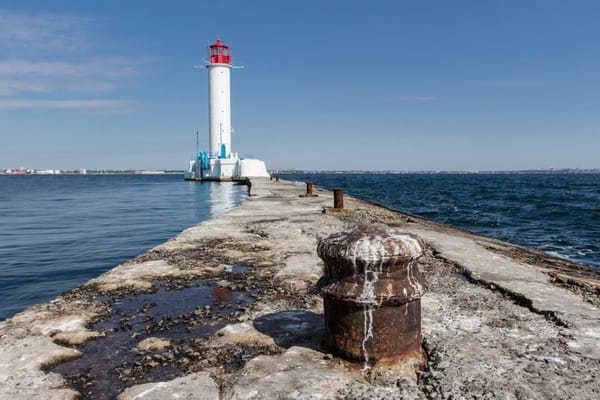'Dismantling institutions is easy, rebuilding is difficult'
One Hungarian journalist's warning to protect democratic values and public institutions

The anti-globalist movement sure seems to be quite globalist. Tracking the narratives of the parties of cynicism over the last few months here in the US and in Europe, it is hard not to notice how frequently the themes and strategies are often shared, words and all (albeit in translation),from country to country.
When certain parties in Bulgaria began floating the need for a Foreign Agents Registration Act, to protect Bulgarians from foreign influences, the act smelled looked a lot like similar acts in Russia, Hungary, Sakartvelo/Georgia, and Slovakia. In October I had the opportunity to listen to, and speak with, people from those four countries. They were (and are) trying to warn Bulgarians (and Americans and all of Europe) to pay attention. Hungarians recounted their own experience when Russian journalists warned them about what was coming in Hungary as authoritarianism was taking hold. And Georgians and Slovakians recounted warnings from Hungarians. They all wish they had recognized the threats to civil society sooner, as the farther autocratic parties get into what sure looks like a shared playbook, the harder the fight becomes.
Notes from New Europe is a reader-supported publication. To receive new posts and support my work, consider becoming a free or paid subscriber.
I had this in mind when I met Gyula Csák at this year’s Prague Media Point (if you didn’t join us this year, please plan to come in November 2025) in late November. Gyula is an Hungarian journalist, media trainer, strategist, and thought leader who has worked across borders for distinguished outlets like Bellingcat, the BBC World Service, RFE/RL, Balkan Investigative Reporting Network, and others. While his work is Europe-wide, home base is now Prague.

GG: When you decided to leave Hungary, did you expect you'd still be living outside of your country now, in 2024?
Csák: I left Hungary in mid-2020, more than four years ago. My primary reason was very simple: I became the director of Radio Free Europe/Radio Liberty’s Hungarian service, and since the headquarters are in Prague, we moved here.
I fully expected to stay because Prague is a fantastic city, and I felt that I needed fresh air. I wanted to live where politics is not imposed on people (not being fluent in Czech probably helps). In Hungary, it’s like living in a constant election campaign, with billboards and digital ads everywhere. You can’t unfollow them, and it takes its toll on everyone. Hungary has become a divided society, a country full of overstressed, anxious people.
GG: When Fidesz and Orban came to power, what concerns did you have?
Csák: The Hungarian Socialist Party-led government of the previous eight years (2002-2010) was, to say the least, unconvincing. Corruption, political scandals, the unsuccessful handling of the 2008 economic crisis—the list goes on and on. People had had enough, so it was no wonder Fidesz won with a supermajority in the spring of 2010. After the first few months in power, it became clear that we were seeing a change in how politics was being done. To be fair, PM Viktor Orban has previously made no secret of his vision that the ruling Fidesz party would be the centre of the political spectrum, with other parties positioned as satellites to its left and right. It became the so-called System of National Cooperation.
So, the theory was there, but it soon became clear that, in practice, this meant total domination and centralisation of the political (and later public) arena. It didn’t happen overnight, but the goal was evident by the end of 2010.
Thanks for reading Notes from New Europe! This post is public so feel free to share it.
GG: When did you start to realize the threats to journalists specifically and civil society in general were going to be so serious and dangerous?
Csák: Hungary has 9.5 million people, so the market is not big enough to support independent journalism, especially regional and local media outlets. Companies have reason to fear losing public contracts if they advertise in independent media. The first step of the Orban regime was to create a situation where independence equals financial insecurity. Most regional and local outlets were bought up by oligarchs or companies run by people close to the government. Independent media were also cut off from information, interviews with government members, etc.
In 2014, government agents raided the offices of three non-government organisations that helped distribute Norwegian grants.* These grants financed organisations, some of them critical towards the Orban regime. The government at that time said that the grants sought to exert political influence.
A few years later, Pegasus, Israeli spyware, was used against investigative journalists, media owners, and their friends and family. When the investigation was published in 2021, Hungary was the only EU country listed as an NSO Group client to purchase the software.
Hungary is no Russia, but the concentration of information, state advertisements (government advertisement spending is fully concentrated and runs through Orban's right-hand minister), and informal pressure on companies (especially on a regional and local level) to not place ads with independent news outlets make journalism very difficult.
GG: If we are to think about this as the Orban playbook, for the purposes of citizens elsewhere to understand the chain of events as authoritarianism is established, what are some of the major steps people in the US (and elsewhere) should be watching for at this moment?
Csák: The playbook is simple: concentrate power, eliminate checks and balances, keep but empty and discredit institutions and cut off independent media and NGOs from their resources. Most importantly, put loyalty ahead of professionalism. Hungary has all the institutions necessary for a liberal democracy—parliament, Constitutional Court, and public service media—but the real power lies with the PM. Everybody knows that no major decisions are made without Orban giving the green light. These institutions are the façade without any real power. Public service media became a propaganda mouthpiece; the parliament is a voting machine, and I can’t remember the last time the Constitutional Court prevented the adoption of any law.
In fact, despite having a supermajority, Orban doesn’t even need the parliament anymore. He’s been ruling by decree for almost five years now. First, he took advantage of the pandemic in 2020 to “accelerate its already extensive control over news and information in the country”, then he used the war in Ukraine to extend it.
Another major step is controlling huge chunks of the private economy. People close to PM Orban, like his childhood friend and relatives, have won major public contracts, including EU funds. There is a very simple logic behind it: economic power keeps you in control even if you lose political power.
GG: When you look at what is happening in Slovakia, Georgia, and the US, what do you want to warn people about? What are the consequences that you know will be coming in the US if efforts by Trump, Fico, etc, are not blocked?
Csák: Things can escalate quickly. It’s relatively easy to discredit institutions and make them dysfunctional, but it’s extremely difficult to rebuild them. Protect your institutions and try to limit power as much as possible. Independent and critical media might seem like a pain in the backside, but they’re crucial in a functioning democracy. Once the damage is done, even after a change in government, you’ll need exceptional politicians not to use the already existing setup to their advantage. So act before it’s too late, and protect democratic values, institutions and people.
Act before it is too late. The story I keep hearing from Gyula and others is less about the specific actions, and more a call to not sit passively by as press freedoms and civic institutions are dismantled. So I ask you to ask yourself: “what can I do” and “what might we do” when we see the authoritarian playbook in action?
I’m all ears. Please share your thoughts, either directly with me or with your fellow readers.
*Norway is a member of the European Economic Area but not the European Union. To compensate for the benefits and to balance the fact that it doesn’t have to contribute to the EU’s spending, it set up a system with Liechtenstein and Iceland to support the member states that joined the EU after 2004.



